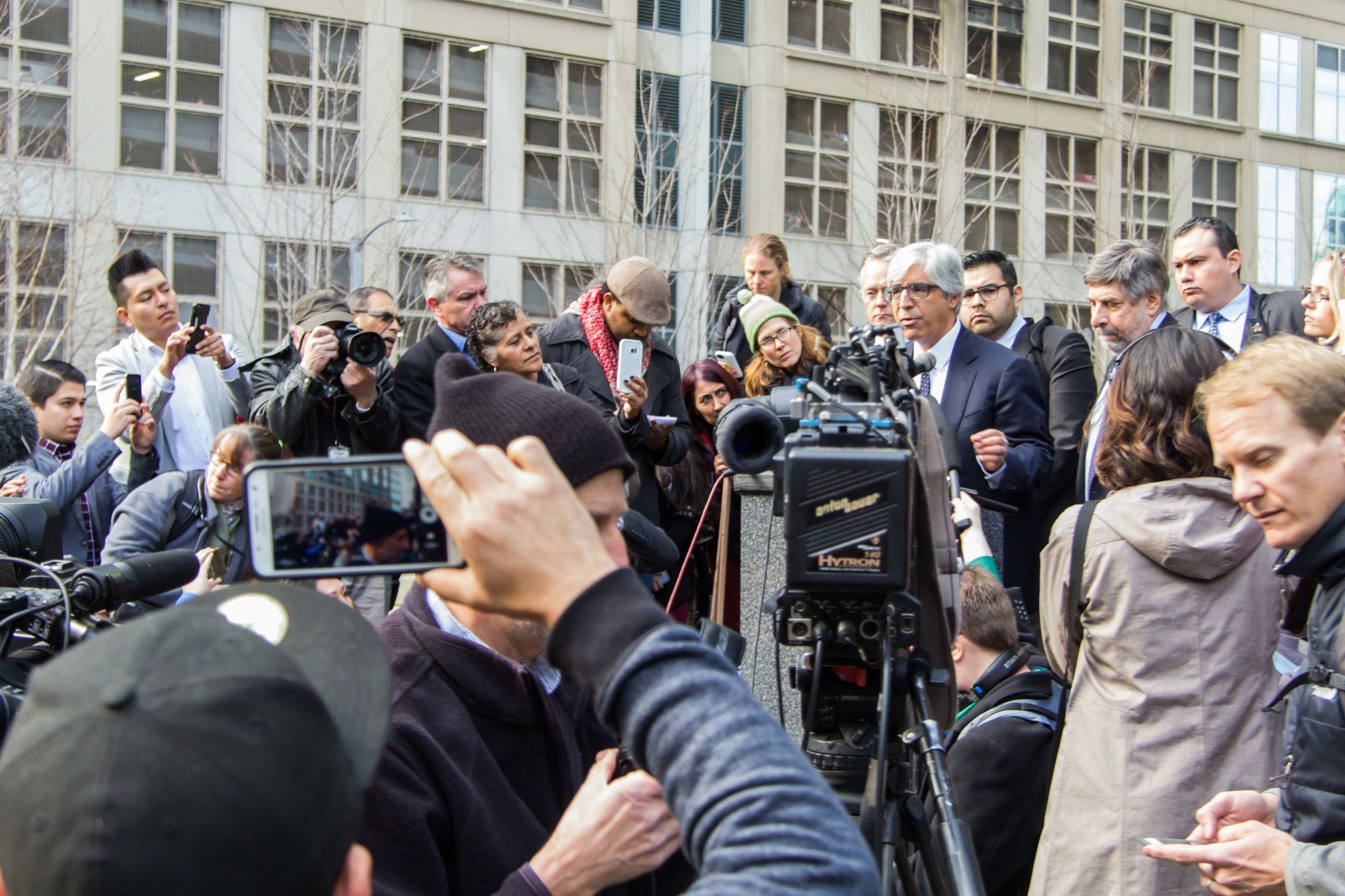This morning at a “status conference,” Judge James P. Donohue declined to immediately release an undocumented immigrant whom federal agents arrested last week. Donohue said that he needs “more information from the petitioners” on whether his court has jurisdiction over Daniel Ramirez Medina, the young father who was brought here illegally at age seven and is cleared to continue working in the U.S. under former President Obama’s Deferred Action for Childhood Arrivals (DACA) program. Ramirez was not present at the proceedings.
Jeff Robins, Assistant Director at the Department of Justice, argued on behalf of the Trump administration that Ramirez’s sudden arrest and incarceration last week by federal immigration police was entirely legal. DACA, after all, is deferred prosecution, and “does not confer lawful status upon an individual,” according to a Department of Homeland Security FAQ. It continues: “DHS can terminate or renew deferred action at any time, at the agency’s discretion.” Robins also argued that Ramirez has not yet exhausted administrative remedies for his detention, and therefore does not yet have standing to argue that his Constitutional rights have been violated.
Mark Rosenbaum and Theodore Boutrous, Jr. led the five-person defense team for Ramirez. They argued that Ramirez’s arrest was improper from the beginning, and that the deportation proceedings against him were made up after the fact to justify it. “This is just a classic habeas case,” Boutrous told the judge, using the legal term for somone who has been illegally detained asking for court relief. Rosenbaum said that Ramirez is a test case for whether federal agents can simply “kidnap” DACA recipients, “put a bag over their head,” and hold them in detention indefinitely without court oversight. “There is no costitutional basis for keeping him detained for seven days or seven minutes,” Rosenbaum said.
Donohue ruled that as far as bail and releasing Ramirez go, “it is my obligation to refer this matter to an immigration judge” for a hearing no later than Friday, Feb. 24. Regarding the larger questions Constitutional protections and DACA recipients, Donohue said, “I need more information from the petitioners” to determine whether he has jurisdiction. Donohue promised to issue a report by March 8 on the question of jurisdiction.
Seattle City Councilmember M. Lorena González, herself a lawyer and the child of undocumented immigrants, reacted to Donohue’s ruling by saying she was “obviously disappointed” that Ramirez isn’t yet released but appreciated the “urgency” with which Donohue is expediting the case. “The outcome we had all hoped for was that there would be a clear decision,” she said. Since that didn’t happen, there are “a lot of DACA recipients” facing “uncertainty about their status.”
Hundreds of Ramirez’s supporters clustered outside the federal courthouse before the hearing. Led by councilmember Kshama Sawant, they marched around the city and allegedly blocked an intersection before circling back toward the courthouse once the status conference ended, with chants of “Free Daniel!”
In short, today’s court meeting resolved none of the questions surrounding the Constitutionality of President Trump’s ongoing immigrant crackdown. Ramirez, and more than half a million other people also enrolled in DACA, still await news of their fate. Kevin Schofield at SCC Insight takes a deeper dive into the details of Ramirez’s arrest and the legal arguments on both sides here.









